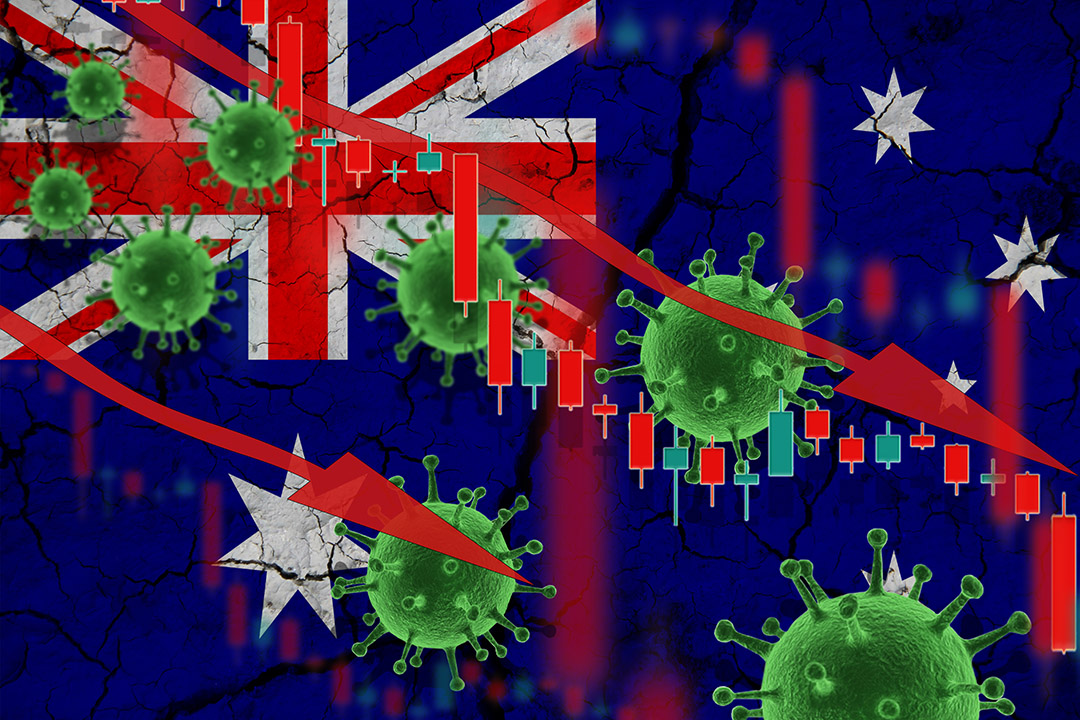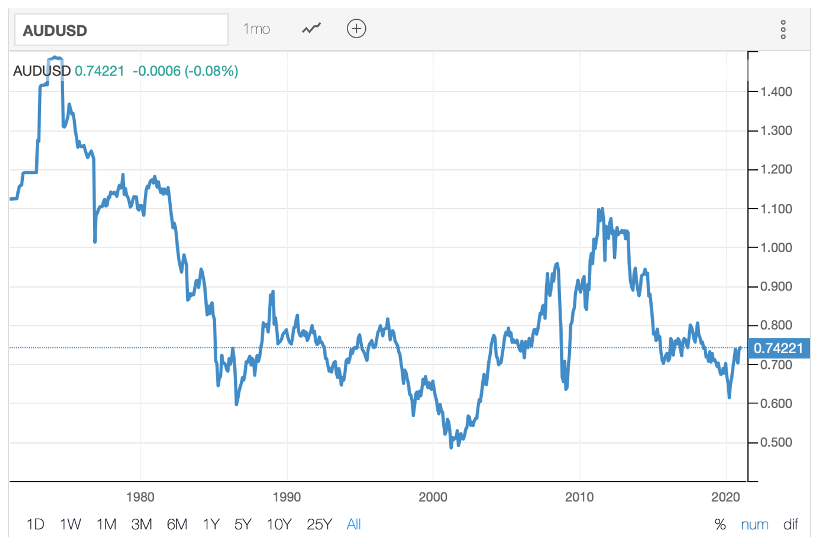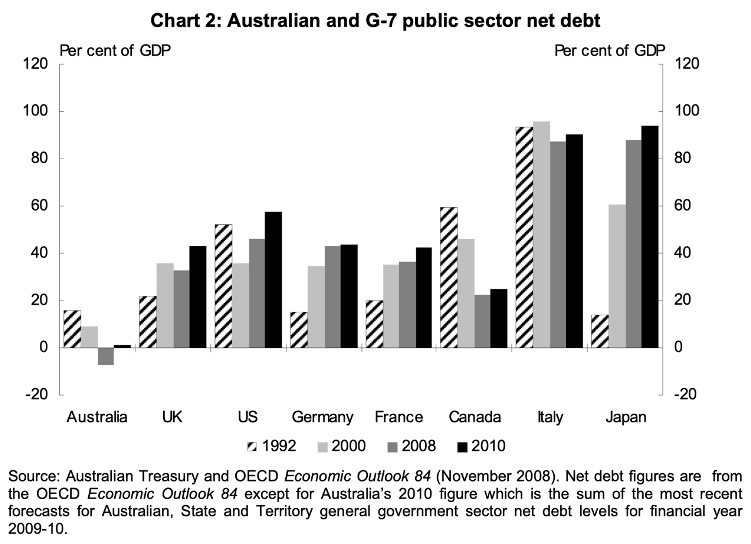

The credit-rating firm S&P Global has scaled down Victoria and NSW’s triple-A credit rating to double-A, thanks to the Coronavirus, the related lockdown that created a recession and the pile up of debt to repair the states.
Because of their second-wave crisis, Victoria has been knocked down two notches to AA, while NSW goes to AA+. This means the people of those states could be slightly affected by the higher interest rates the Treasurers will have to pay because they’re now riskier borrowers.
But don’t fret, the real interest rate affect will be a couple of basis points, not a couple of percentage points! Australia and our states are seen by lenders as some of the best risks in the world. And anyway, with the size of our super funds, we could always borrow locally.
Normal people worry about the country carrying too much debt but abnormal people i.e. trained economists, experienced business builders or entrepreneurs and the like) don’t worry too much about debt.
I say “too much” because debt can be destructive. Ask the poorer relations of Alan Bond and Christopher Skase, who saw their once highly-regarded business giants crushed by too much debt when meeting the October stock market crash of 1987.
The same debt trap captured and killed the reputations of other business leaders like Robert Holmes a Court, John Spalvins (who once owned David Jones via his listed company) and John Elliott.
Two years before that market crash, I started writing in The Daily Telegraph, explaining the changing world of the Aussie economy as Bob Hawke’s and Paul Keating’s deregulation policies meant we faced enormous changes, such as a dollar that went to 45 US cents in 1986, as our Treasurer said we could end up as a Banana Republic unless things changed.

But while people and businesses can be easily KO’d by too much debt, governments can be far more resilient. Since 1985 I’ve fielded so many questions and coped comments about how debt will destroy us, our jobs, our way of life and our economy, yet we grew for 30 years without a recession.
Experts who still make comments tipped the Sydney Olympics would leave us broke, while others predicted house price collapses and Armageddon-style Great Depressions. They have been proved wrong.
They go on predicting, hoping one day they’ll be right but they continually get defeated by the ingenuity and persistence of mankind to find and fund solutions.
That said, this is the biggest test of central banks and governments since the 1930s Great Depression. With this mountain of debt, what we need is an enormous surge in economic growth over the next three to five years to bankroll these COVID-19 induced recession rescue plans of governments worldwide.
Back in the early months of the Coronavirus, the chief economist of Morgans, Michael Knox, suggested if a vaccine arrives earlier than expected, then the enormous stimulus in the global economy’s pipeline could result in a rerun of the Roaring 20’s boom of the 1920s.
Hopefully, the monetary and stock market controls will be better if that comes to pass so we don’t end up in a Great Depression Mk II in the 2030s!
But the critical way to lower this debt mountain is to mow it down by fast growing economies. The September quarter’s better-than-expected 3.3% growth was a good start. And I hope the RBA’s forecast of 5% in 2021 is spot on because that’s what we need to manage the debt.
As a country, our governments have run up big debts but then have got on top of that debt.

The chart above shows that in 1992 our debt as a percentage of GDP was under 20%. But by 2008 it was negative, meaning governments were running surplus budgets! Even after the GFC, it was a small deficit but compare us and how we have managed debt to the UK, US, Germany, France, Canada, Italy and Japan.
Our history shows we are champions in managing debt. It might be time for the doomsday merchants and nervous Nellies out there to have some faith in what we can do and stop being experts on stuff where they have little expertise. I say this with the greatest respect, but I suggest that so many bush economist experts have never seen a chart like the one above and have never really thought through just how good we are!